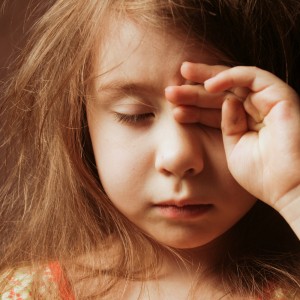Sleep Problems in Children: The Pediatrician’s Perspective
By Shilpa Vernekar, M.D, F.A.A.P
There is lot of truth in the saying that we spend 1/3rd of our lives sleeping. But, the importance of healthy sleep habits is not emphasized in today’s society. Many parents underestimate the detrimental effects that inconsistent and inadequate sleep patterns can have for their children, who need even more sleep than adults. Children on an average need a minimum of 8 to 10 hours of sleep per night (Toddlers need 10-12 hours,) so bed time for most of them should be around 8 to 9 pm.
A good night’s sleep not only makes the child feel refreshed but also makes his/her mind more alert and able to learn things and retain them. Some commonly encountered problems associated with lack of sleep include: not paying attention in class, feeling sleepy during class hours, headaches and cranky behavior. This lack of concentration can in turn lead to poor performance in academics. The treatment to this is simple: ensure that your child gets a good night’s sleep.
What Causes Children to NOT Get the Recommended Amount of Sleep Each Night?
A variety of factors come into play. Some of the major – controllable—causes of sleep deprivation include: personal choice (i.e. the individual does not realize the importance of adequate sleep habits and therefore elects to stay up late watching TV or performing other activities), the sleeping environment is not conducive to sleep, or lack of a routine.
What Can Parents Do To Help Sleep Problems in Children?
- First and foremost is the timing of sleep.
- Ensure that your child goes to bed at almost the same time every day. It is very important to bring this into practice. Going to sleep at the same time every night (weekends included) adjusts the body clock so that every night around that time the body naturally starts to fall asleep.
- TV and video games may hamper the natural winding down routine of the body, so it is important to stop or limit screen time an hour before bedtime.
- It is advised that there should be no TV or electronic device in the child’s bedroom to distract the child and prevent from falling asleep.
- Additionally, media use throughout the night (e.g., answering and responding to calls and texts) can be a significant factor in delaying and disrupting sleep.
- Create a consistent bedtime routine.
- Habits like bathing, brushing teeth, reading a book will create a pre-sleep routine and let help the child unwind from the day’s activities and get ready to sleep.
- Going to bed hungry or without eating well may hinder in getting a good night’s sleep, so ensure that your child has a good meal before going to bed.
- Drinking a tall glass of warm milk helps with sleep.
- Having a soft white light on, white noise or a security object like blanket or soft toy also helps the child to fall asleep.
- Make choices throughout the day that will help rather than hinder your child’s sleep at night.
- Exercise during daytime to prevent the kid from being wound up at night.
- Avoid caffeinated products after 5-6 pm.
- Avoid long daytime naps (more than 2 hours) and let the daytime naps be at the early part of the day.
- Address any consistent issues that are not going away over time.
- Nightmares (where the child remembers the dream) and night terrors (when child wakes up crying but does not remember anything) may also be part of the reason why the child may not be sleeping well. Reassurance helps. If problems persist, consult your child’s pediatrician.
- If your child does sleep walking it is very important to ensure that all the doors are safely locked and the child cannot unlock them and wander out.
- If you feel that you have tried all the above measures and still your child has trouble falling asleep, difficulty staying asleep, wakes up multiple times at night, snores and has breathing pauses then it is advised to consult with the child’s pediatrician.
Dr. Vernekar joined Phenix City Children’s in November of 2011. She is a fellow of the American Academy of Pediatrics and a board-certified pediatrician. In addition to Sleep Problems in Children, Dr. V has written on a variety of topics for parents, including sex education, bedwetting and more. Follow Dr. Vernekar on Twitter at: http://twitter.com/
Photo Credit: graphicleftovers.com, istockphoto.com
Related Content:
- E-cigarettes: A Pediatrician’s Perspective
- Treating Colic: a Pediatrician’s Perspective
- Fever in Children: a Pediatrician’s Perspective
- Picky Eaters: a Pediatrician’s Perspective
- Kids and Bedwetting: a Pediatrician’s Perspective
- Childhood Vaccinations: a Pediatrician’s Perspective
- ADHD and Kids: a Pediatrician’s Perspective
- Antibiotics and Kids: a Pediatrician’s Perspective



